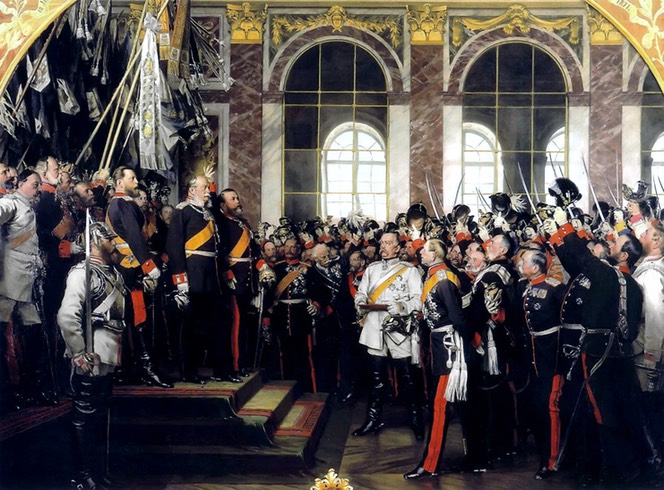
In 1870-1871, the German states under the leadership of Prussians went to war with France. In the Franco-German War, the German military turned out to be better prepared than the French army. Napoleon III was capture at the Battle of Sedan,but the French declared once more a republic and it took the Siege of Paris by the German military to force France to agree to a peace. Behind the scenes, Bismarck had worked to complete the unification of Germany. Only Bavaria, Württemberg, and Baden were by then still outside of the North German Confederation. On January 18, 1871, the German princes came together in the Hall of Mirrors in Versailles (the palace build by Louis XIV of France and the symbol of royal absolutism and French power) and announced the formation of the German Empire with Wilhelm I of Prussia as Kaiser. On May 10, 1871, Germany and France signed the Peace of Frankfurt, ending the Franco-German War. France had to hand over the eastern border provinces of Alsace and Lorraine to the Germans and a war indemnity of five billion francs was to be paid by France. German troops continued to occupy parts of France until the indemnity was paid, which occurred surprisingly fast. What the Franco-German War did was create lasting revengism among the French. Not only had France lost territory and to pay a large indemnity, most outrageous to the French was the announcement of the German Empire in the heart of France, in Versailles.
By Dr. Niels Eichhorn